From Beowulf and The Canterbury Tales to the Romantics and Shakespearean plays, British literature has long been a cornerstone of English language arts curricula in American schools, offering students a rich canon of literary classics that spans centuries. But in the ever-evolving educational landscape, what do ELA teachers think about British literature today?
To dive deeper into this question, we conducted a survey among our ELA teacher base, seeking their perspectives on teaching their favorite British literary works. Here’s what they had to say!
Do you teach a British literature course?
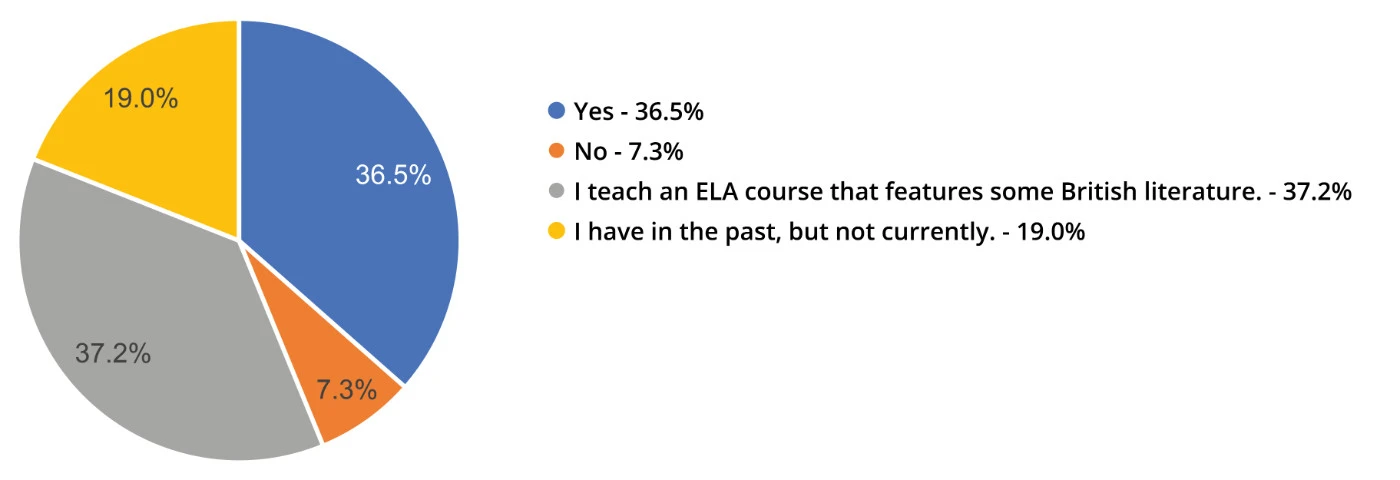
As part of their English language arts curriculum, many schools in the U.S. offer special courses on British literature. When asked if they teach one of these courses, 36.5% of survey respondents said yes, 7.3% said no, 37.2% said they teach an ELA course that features some British literature, and 19% said they have in the past, but not currently.
Which books do you personally consider to be British classics?
Ask a hundred people which British classic they like the most, and you’ll probably get a hundred different answers. This free-response question invited teachers to share what books they personally view as British classics. Here are the top 10 teacher picks:
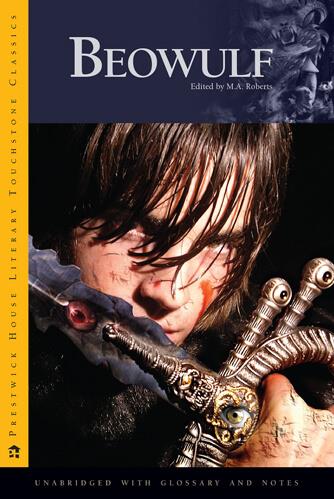
Beowulf |
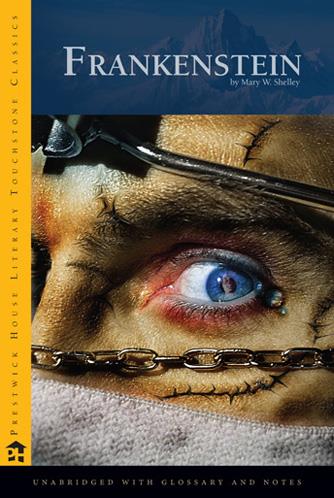
Frankenstein |
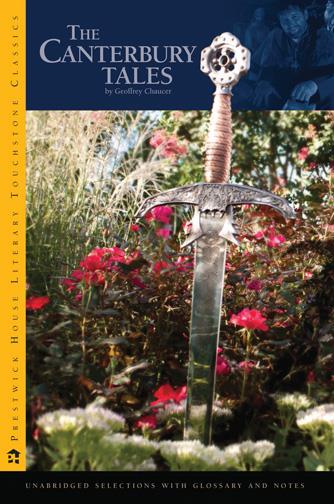
The Canterbury Tales |
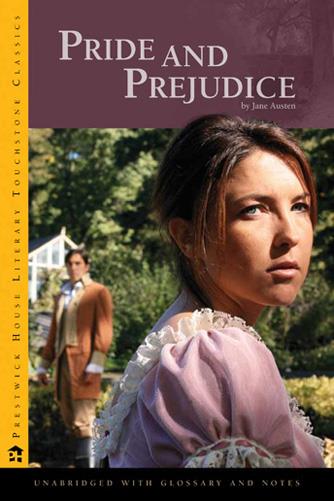
Pride and Prejudice |
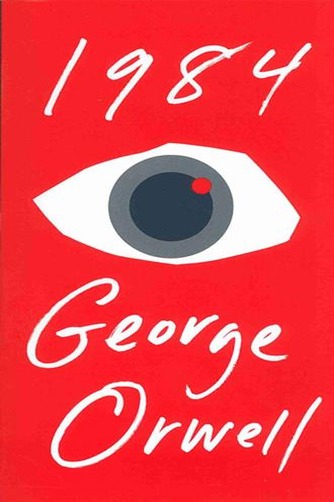
1984 |
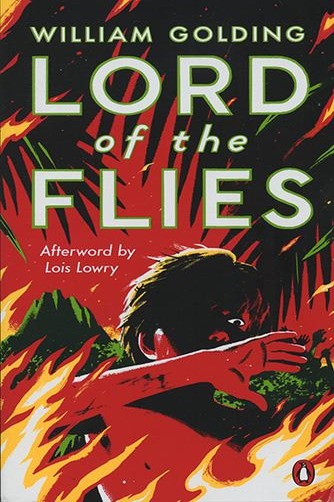
Lord of the Flies |
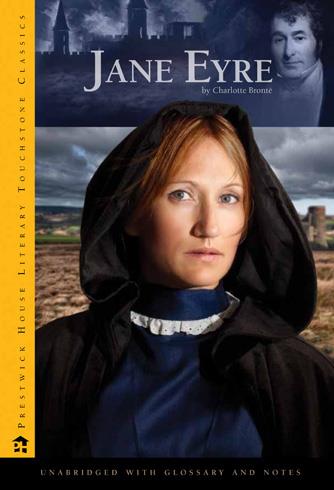
Jane Eyre |
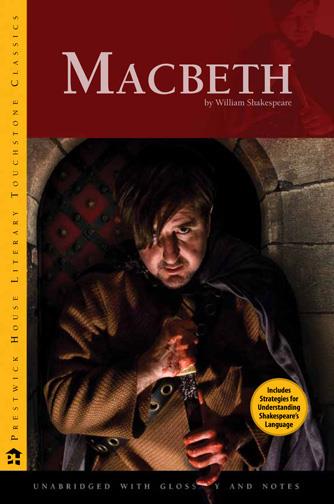
Macbeth |
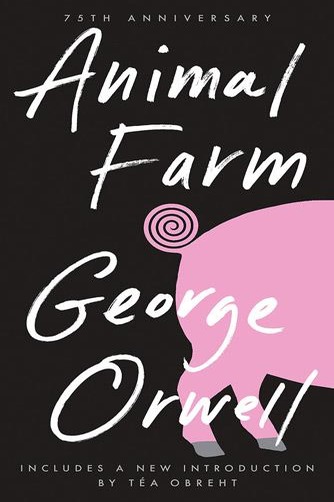
Animal Farm |
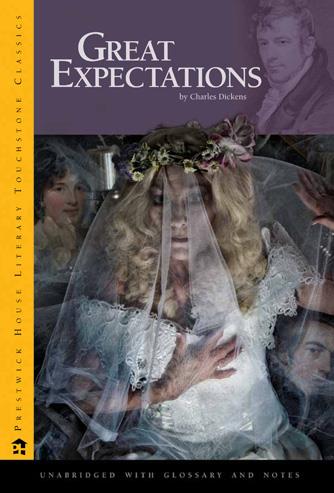
Great Expectations |
Which period of British literature is your favorite to teach?

With distinctive styles and themes, British literary periods each offer something new to study. Among survey respondents, the Renaissance was the most popular to teach (21.2%), followed closely by the Victorian Age (19.7%) and the Romantics (19%). Middle English and Old English trailed behind at 10.9% and 8.8% respectively. Twentieth-century eras got the least amount of love: Modern (8.8%), Postmodern (6.6%), Edwardian (1.5%), and Georgian (1.4%). The poor Neoclassical era didn’t receive any votes.
Do you think these books are relevant to your students?
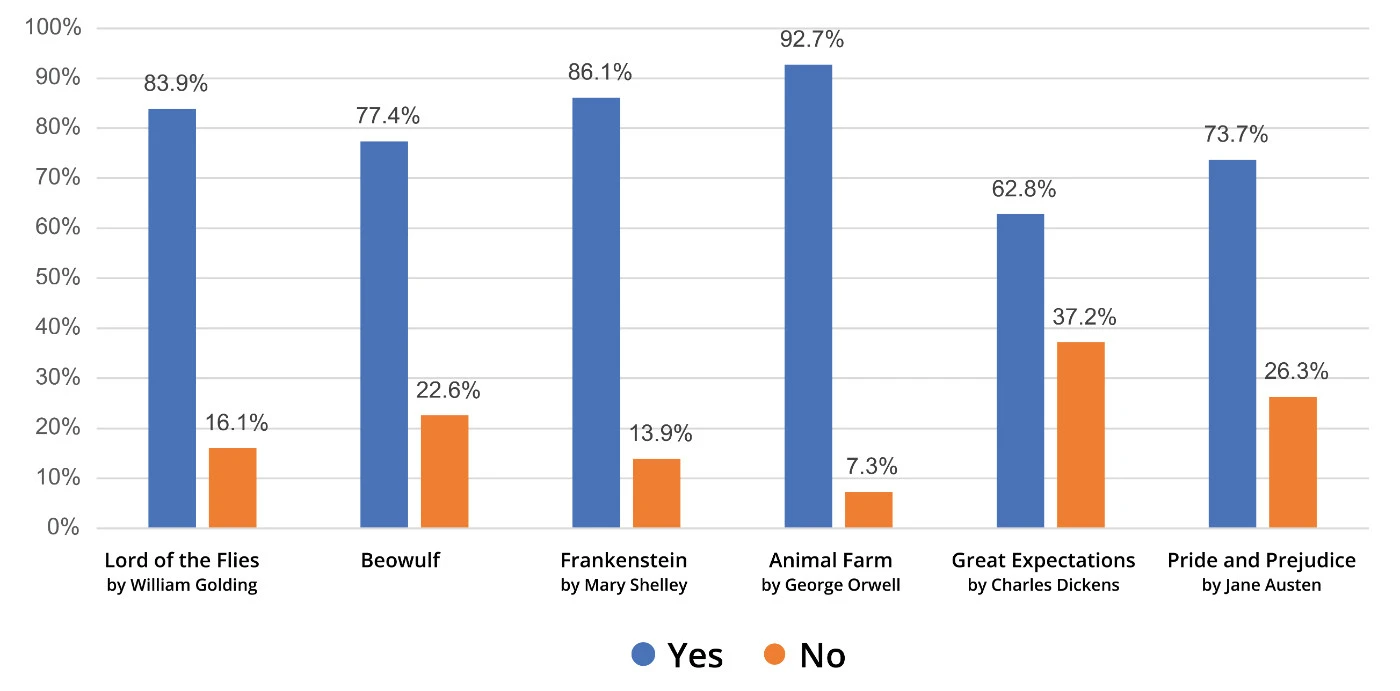
Look at any list of British titles taught in U.S. schools, and you’re bound to see at least one of these six classics: Lord of the Flies, Beowulf, Frankenstein, Animal Farm, Great Expectations, and Pride and Prejudice. Like the American classics shared in our previous survey, these British books are often debated by today’s educators on their academic and literary merits.
Most people agreed that these books are still relevant to their students. Animal Farm received the most “Yes” votes at 92.7%, followed by the sci-fi classic Frankenstein at 86.1%. The rest are as follows: Lord of the Flies (83.9% yes, 16.1% no), Beowulf (77.4% yes, 22.6% no), Pride and Prejudice (73.7% yes, 26.3% no), and Great Expectations (62.8% yes, 37.2% no).
If you could teach any book by a British author from any literary period, what would it be?
For this question, we wanted to know which British books would be the most popular to teach if educators weren’t confined to literary periods or curriculum restraints. We were surprised to see that even by choice, teachers still picked the classics. Here are the top 10 responses:

Frankenstein |

Animal Farm |

Macbeth |

Beowulf |

Pride and Prejudice |

1984 |

Jane Eyre |
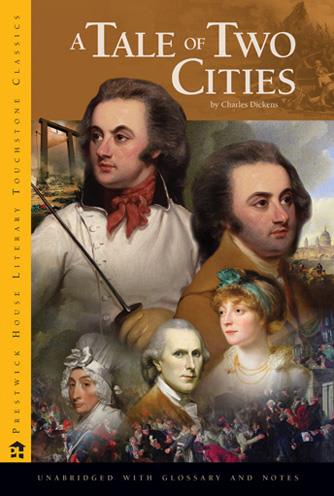
A Tale of Two Cities |

Lord of the Flies |
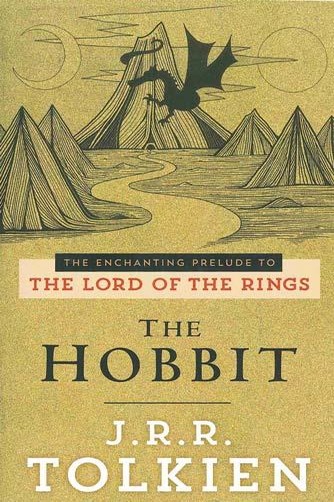
The Hobbit |
Have you considered teaching any of the following books?
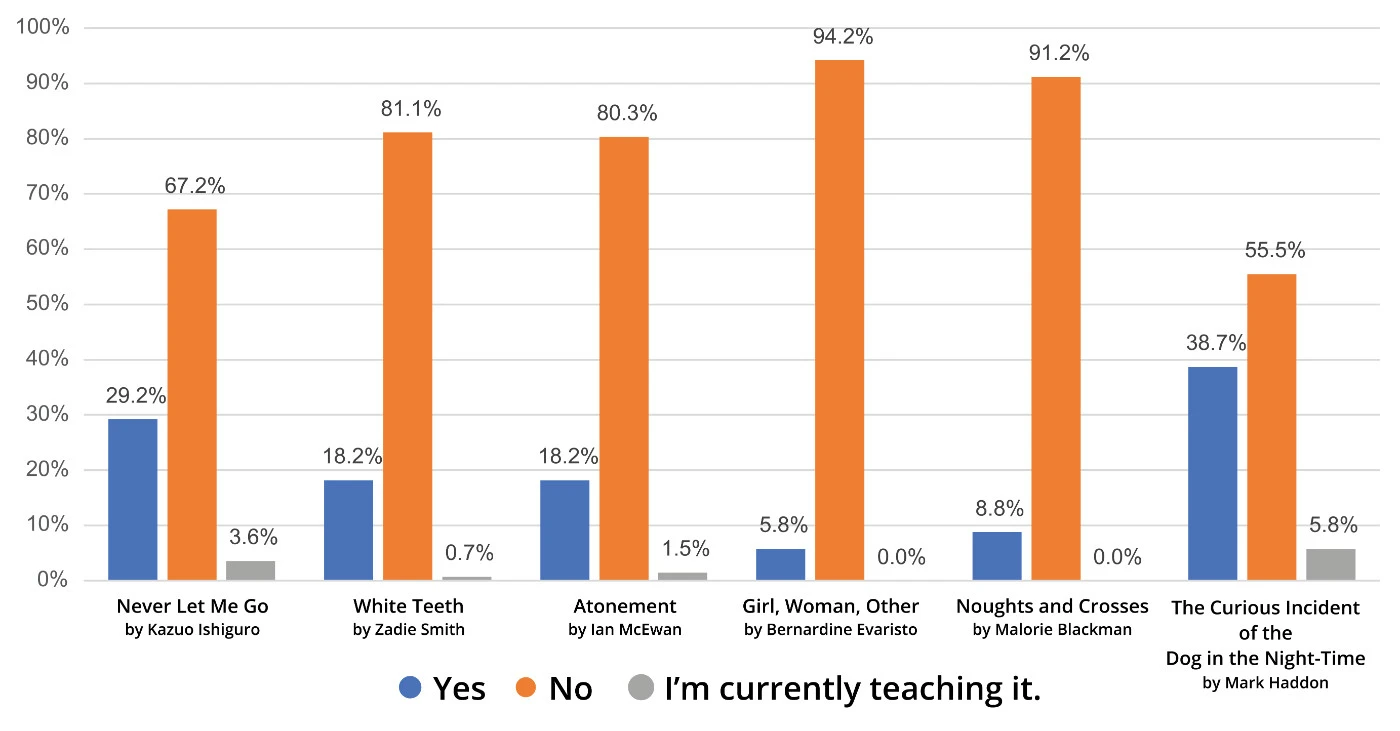
We presented respondents with a list of contemporary books that are famous in the U.K. but not quite as known in the U.S. When asked if they ever considered teaching any of the titles, the overwhelming majority of respondents said no. A few respondents did say they were currently teaching Mark Haddon’s The Curious Incident of the Dog in the Night-Time, Kazuo Ishiguro’s Never Let Me Go, Ian McEwan’s Atonement, and Zadie Smith’s White Teeth.
In which grade are students first introduced to any of Shakespeare's works in your school or district?
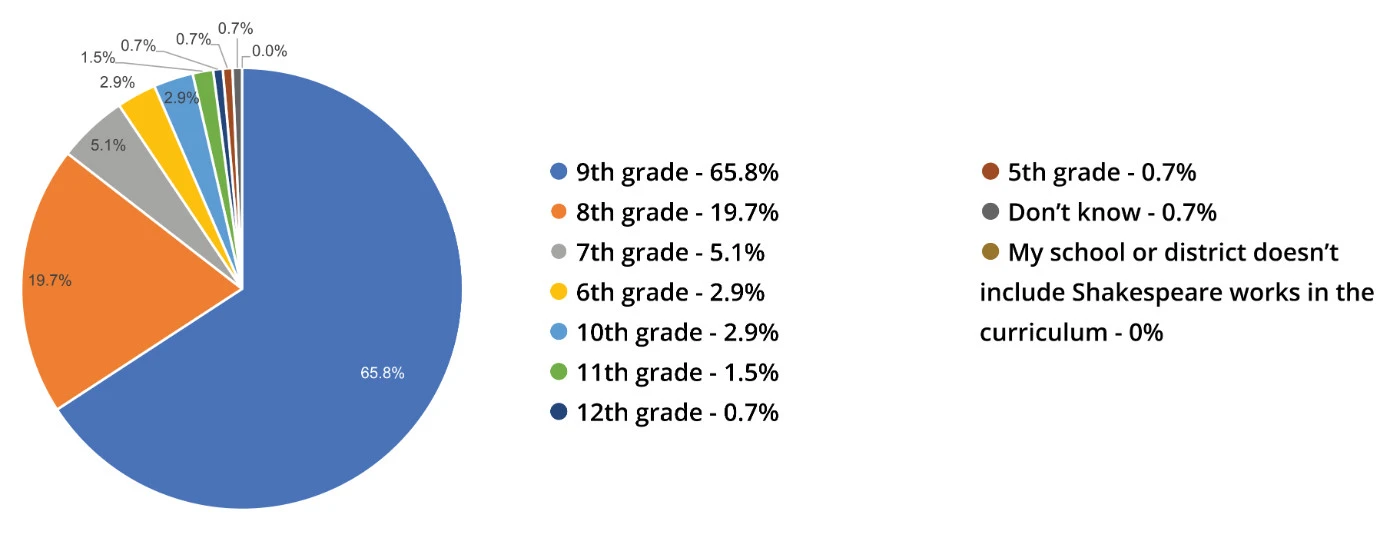
A discussion on British literature isn’t complete without bringing up Shakespeare. When asked in which grade students are first introduced to any of the Bard’s works, the majority of survey respondents (65.8%) said ninth grade. Following far behind was eighth grade at 19.7% and seventh grade at 5.1%. Sixth grade and tenth grade tied at 2.9%. The remaining responses were as follows: eleventh grade (1.5%), twelfth grade (0.7%), and fifth grade or below (0.7%).
To your knowledge, which of Shakespeare's works do students in your school or district first study?
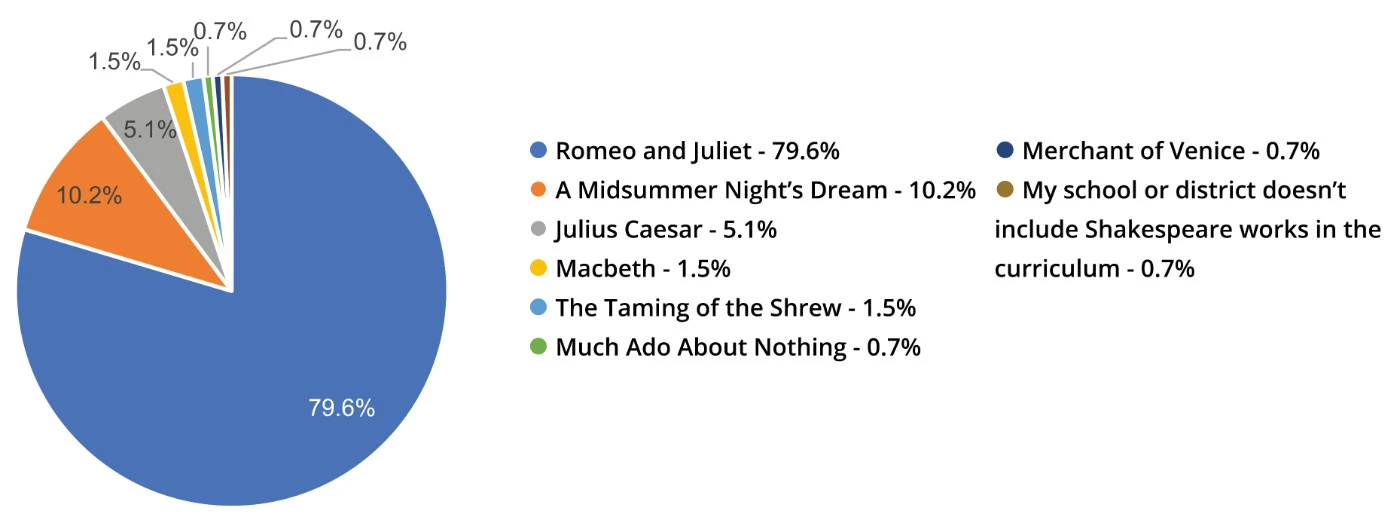
We have an idea of when students first encounter Shakespeare. Now, let’s see which play serves as that introduction! According to the survey, Romeo and Juliet is the clear favorite at 79.6%. A Midsummer Night’s Dream is a very distant second at 10.2%, followed by Julius Caesar (5.1%), Macbeth (1.5%), The Taming of the Shrew (1.5%), Much Ado About Nothing (0.7%), and The Merchant of Venice (0.7%).
In your opinion, how important is it to teach Shakespeare's works to modern students?
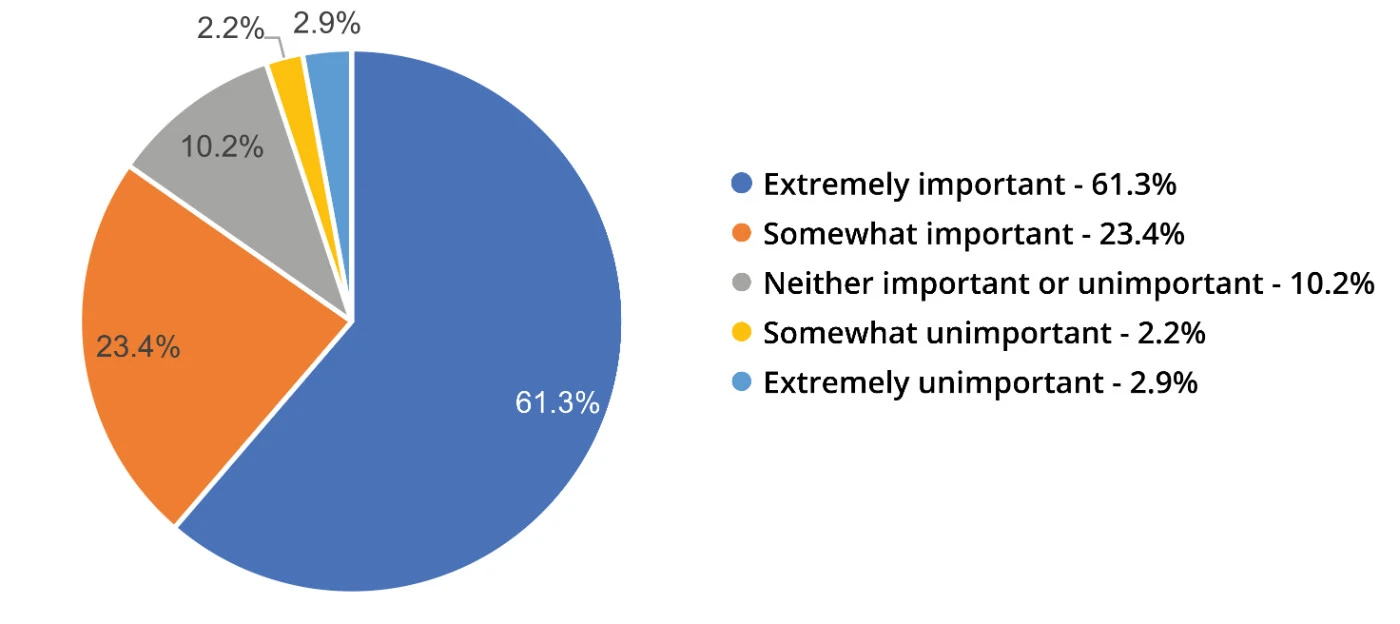
We’ve established we’re still teaching Shakespeare, but is that out of habit or necessity? When asked how important it was to teach Shakespeare’s works to modern students, 61.3% of survey respondents said it was extremely important. Responses shrunk from there: somewhat important at 23.4%, neither important or unimportant at 10.2%, somewhat unimportant at 2.2%, and extremely unimportant at 2.9%. It seems like Shakespeare is here to stay.
When teaching plays, do you incorporate any of the following media resources into your lessons?
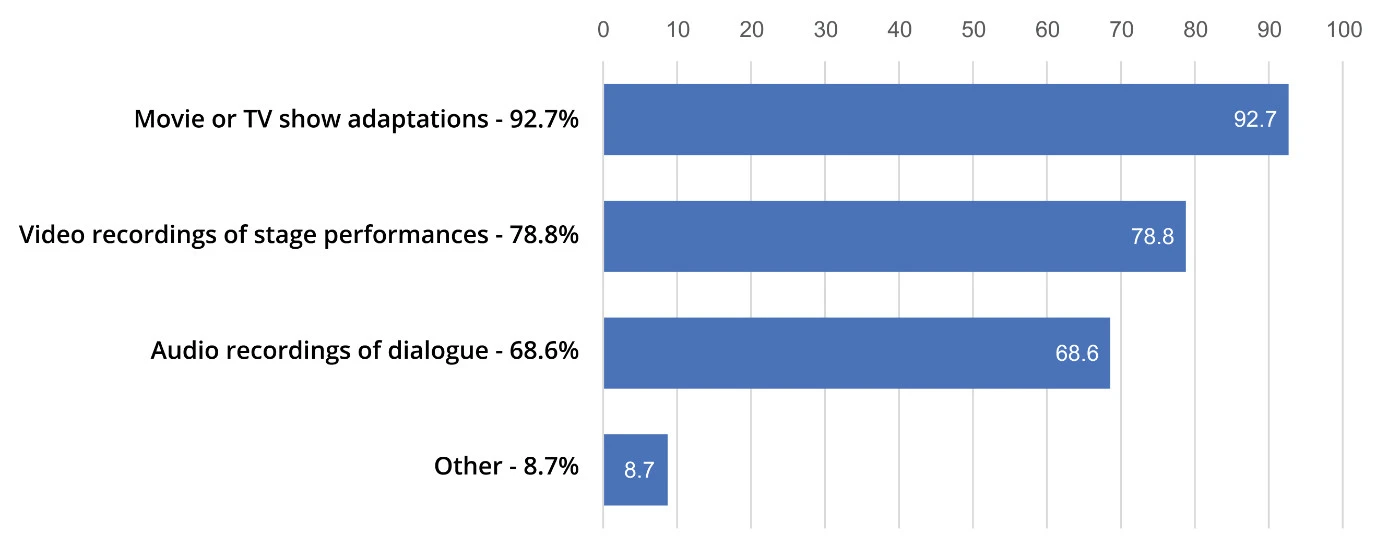
Simply reading a play from the pages of a book is not enough to truly experience the drama and wit. As one survey respondent said, “Plays MUST be seen!” Introducing media resources to units on plays adds that extra dimension students need to fully grasp the material.
So, which media resources are the most popular to use? Movie or TV show adaptations topped the list at 92.7%, followed by video recordings of stage performances at 78.8%, and audio recordings of dialogue at 68.6%.
Other responses included recordings of past students’ performances, clips of actors discussing their interpretations of scenes, live productions like the WillPower Tour, and video summaries offered by Course Hero and other educational sites.
What do you think of the survey results? Are you surprised by some of the responses? We want to know! Join the conversation on Facebook or Instagram.
Thank you to all of our survey respondents. Your opinions are always appreciated! We’d love to hear from you again in the future, so please keep an eye on your email inbox for more survey opportunities.